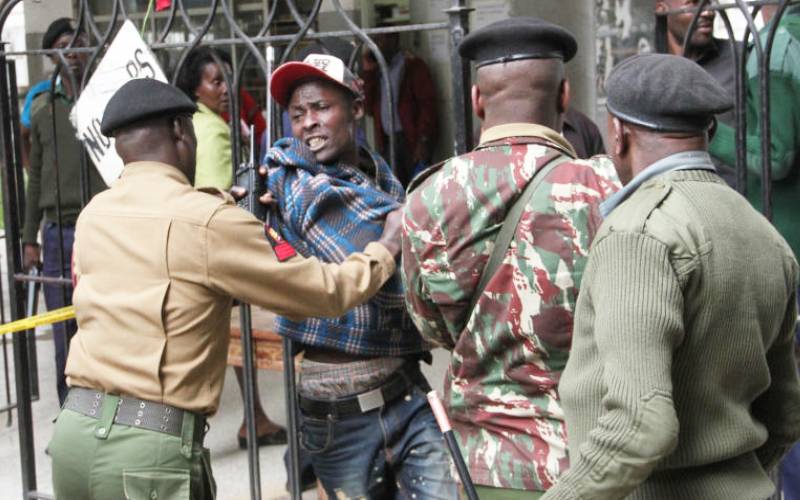×
The Standard e-Paper
Stay Informed, Even Offline

In democratic societies, police officers are part of law enforcement. [Standard]
Every time I meet a policeman, I get rattled. I am shaken by his uniform, unnerved by his gun and flustered by shoes polished to a spit shine.